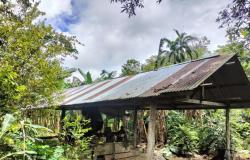Iván Ojeda-Pereira, Dr.(C) in Sociology. Researcher Lithium R&D&i Center UCN
Sebastian Herrera, PhD in Mineral Process Engineering and PhD(C) in Industrial Engineering. Academic Department of Chemical and Environmental Engineering and Researcher Lithium R&D&i Center, Universidad Católica del Norte.
In the history of humanity we have mutated and transformed our social, political and economic physiognomy on various occasions. Thus, we find multiple moments of transition from point “a” to point “b”. For example, let’s imagine what European colonization or dictatorships and returns to democracies, or even electrification and the launch of the Internet, meant for Latin American or African communities.
Many of these changes or great transformations that humanity has faced have been developed based on imperatives, but what are imperatives? We can understand imperatives as the reason or foundation that commands us to perform this or that action at a certain pace. For example: the colonization of the world under the imperative of evangelization and European commercial development; or the extraction of natural resources for the imperative of economic growth. Even, in a more extreme way, the dropping of the atomic bomb and genocide on the imperative of peace. The interesting thing is that transitions oriented by imperatives historically tend to be loaded with violence, with what is shoved under the rug in the name of moving forward, what they sometimes call “negative externalities” or “footprints.” Instead of assuming that burden a priori, why not question ourselves in a serious, systematic and informed way about the planning and construction of political technologies that allow the management of these impositions?
In the world we live in, we must recognize that distances have been limited and that with all the inequalities, impositions, collaborations and links we have advanced to a type of global society. Indeed, regardless of the assessment and opinion we have about globalization, it is undeniable that networks have become more complex on a global scale. For example, we can order a product through an application from China and in less than a week it arrives at the door of our house in Antofagasta. This link between the global and the local is what we call the glo(cal), an extremely complex space that can be positive, but also immensely harmful. It all depends on how power is managed.
The global impulse to move towards more sustainable societies at a time of climate change generates a complex context. The transition is based on the imperative of action, to do something quickly in the face of this total crisis. But if we stop for a moment and slow down the imperative of change for a short period, perhaps it is worth asking ourselves regionally and nationally: what are we willing to do in the name of sustainable transition at a global level? What is the limit to that ceases to be sustainable at the local level? How can we measure this “sustainability”? How does it affect global development at the local level? Is it possible to talk about global development that considers all the particularities of the various territories that make up our planet?
The central question and the reflection that we must urgently deploy is how to carry out a transition without reproducing the violence that transitions based on imperatives always bring with them? That is the challenge of thinking about a Just Transition. A Just Transition for the Antofagasta region and for the future development of lithium.






